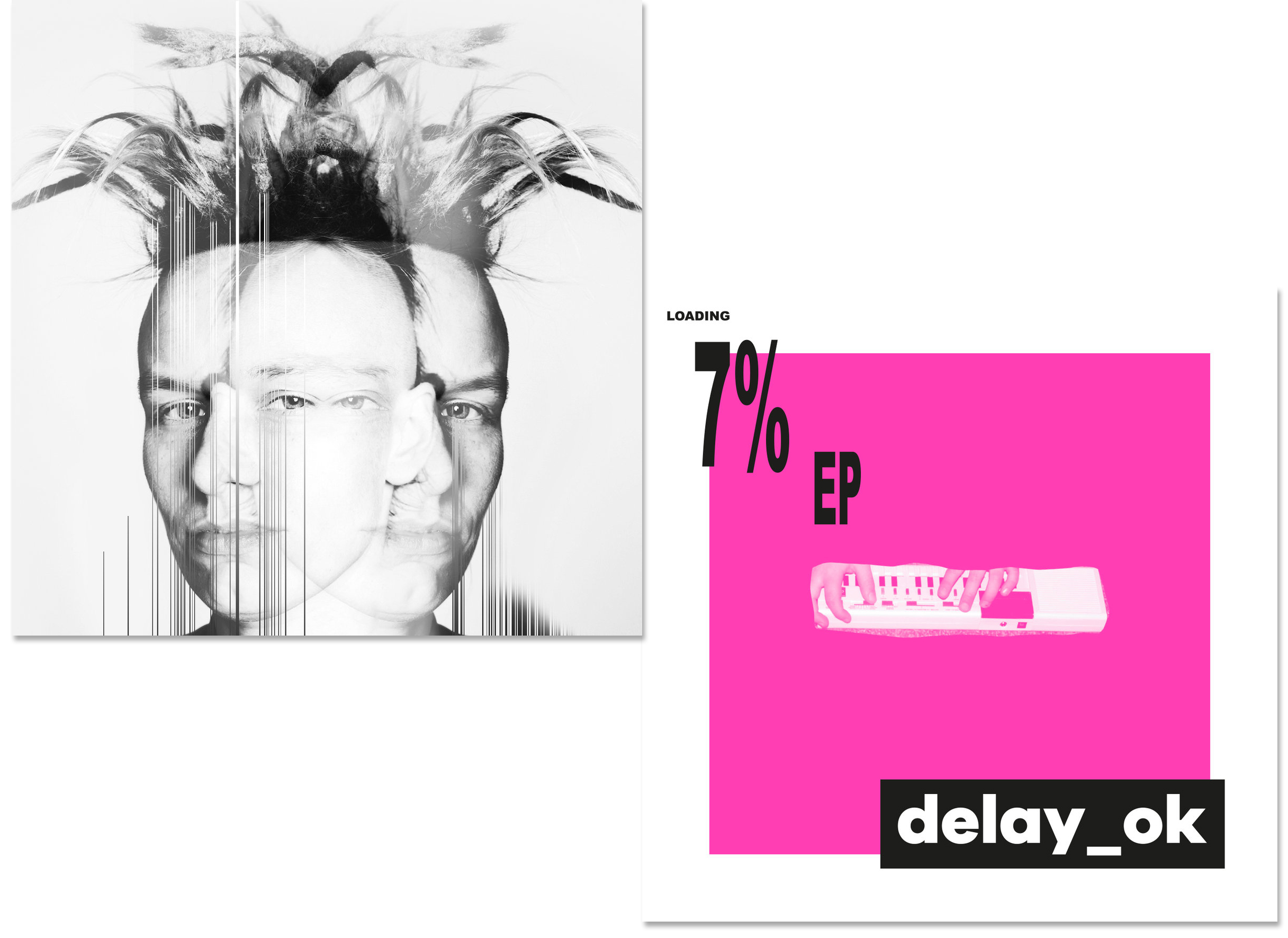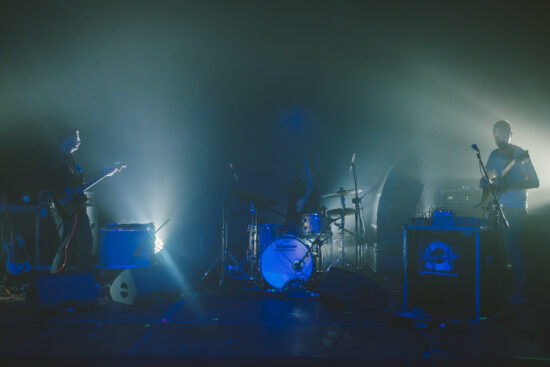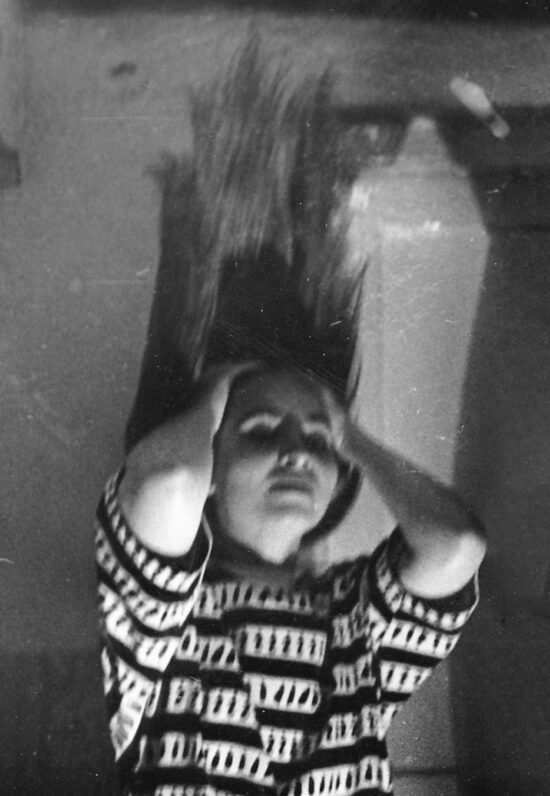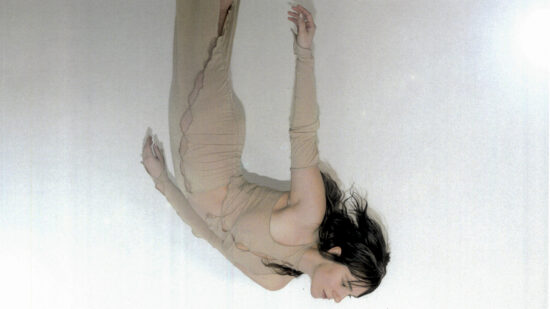Loading 7% by Delay_ok is micro-music – created at home, using a limited number of instruments. At the same time, though, the macro aspect is there too – the sound is very spatial, full of diverse layers and interlacing ideas. Joanna Duda on Keen interweaves various threads, piecing them together into a colourful mosaic, which may seem incongruent at first sight, but thanks to how subtly and craftily subsequent tracks are pieced together, the record sounds coherent and convincing.
Translation: Aleksandra Szkudłapska
This year Alpaka will be celebrating its second birthday. I have no idea where the name came from, but it works for a music label, drawing attention to a very original set of releases. The label was founded by musicians from Algorhythm after putting out their first record, but Alpaka’s catalogue soon grew to also include their friends and friends of friends. Two years and almost 10 releases is quite a lot. Albums no. 9 and 10 from 2019 – which, at the same time, are the first two proposals that present a clear departure from jazz stylistics, most prominent on the label.
A list of all projects where Delay_ok musicians are active would occupy about a third of this text, so let me just say that many of them are clearly electronica-oriented. Apart from the piano, Szymon Burnos plays keyboards and sometimes the moog in The Fruitcakes, Algorhythm or Tomasz Chyła Quintet; saxophonist Piotr Chęcki plays in 2 out of the 3 above-mentioned bands, also reaching for the OP-1 synthesizer, but he also appears in various outfits accompanying Wojtek Mazolewski. Jacek Prościński is definitely the most “electronic” one: whether he’s playing with Reni Jusis, in the Lasy duo or delivering such delicacies on his own as wh0who on drums and electric drums.
Loading 7% is the product of the most electronic-oriented exploration of the three musicians. It documents a free-flowing jam session, played without any restraints. Luckily, instead of researching the possibilities offered by their respective instruments, this is another stage of creating a joint idea for a rather unique kind of music: improvised electronica played freely as a group. Here you will not find strict structures calculated by a computer, to which each of the musicians would add his respective tracks. Delay_ok is not about dehumanized sound. It’s a cumulation of joint energy and structured freedom, taking on the shape of concise, pulsating tracks. Prościński generates beats on electronic drums – most often very diverse, forming the basis for the rest of the musicians, sometimes in a very broken fashion (“Astro”). Sometimes they have some dream-pop influences, sometimes they catch on hip hop, but these are not obvious clues. Chęcki only occasionally reaches for the saxophone, focusing on cosmic synthesizer layers, adding colour to Burnos’s sounds and keyboard melodies. Loading 7% is micro-music – created at home, using a limited number of instruments. At the same time, though, the macro aspect is there too – the sound is very spatial, full of diverse layers and interlacing ideas. Sometimes a little chaotic, but maintaining the atmosphere of a cosmic desert.
“Dzieci” is a delicate warm-up for the acidy flow of “Faza” or “Cotototo”; “Czajna” reverberates with loose inspirations with Japan, while “Technoafex” is all about quasi-melodies, as if taken straight out of computer games. Some songs are built on patterns that are repeated throughout the given piece, forming the basis for the band’s compositions – others are a hodgepodge of ideas, not always fully palatable, but nevertheless charming in their simplicity. What definitely comes through is that all musicians are open to new ideas and know how to wittily exploit this new constellation and their set of tools. I am very curious about what Delay_ok will come up with in the future.
Joanna Duda also presents a different side of her musical activity. You might know her from Wojtek Mazolewski’s ensembles, but also the sphere of contemporary or electronic music (I have a vivid recollection of her fantastic rendition of Julius Eastman’s Unchained from the Unsound festival). Keen is her second solo album – while I was not entirely bought by her debut The Best Of, this record is more cocky on the one hand, more coherent and convincing on the other. Duda basically turns the piano inside out, hiding the beautiful and melodious sounds, instead selecting their scraps, broken, ragged and chewed over. The nine pieces on the record tell nine complex stories – none are predictable, many feature quasi-glitch parts, and the borderline between the acoustic and the electronic is very skilfully blurred. The artist samples and prepares her piano, immersing in electroacoustics (bringing to mind Arszyn’s music from several years back); she occasionally plays single motifs on the instrument, but more often finetunes, and plays with, the form.
It’s hard to call Keen a piano record, as it is based on a number of tools and means. The obvious – it would seem – trope contained in the title “Fugue” proves deceiving, when samples from pop records keep buzzing below the surface, never to be fully released, always accompanied by the delicately prepared piano strings. “Choinka” may be the nicest sounding piece, but halfway through it begins to vortex into a hip-hop collage of sorts, with sampled commentary of one of the listeners criticizing the dubious quality of the record. Here Duda refers to the heritage of Polish electronic avant-garde, perhaps even distantly reminiscing about the Polish Radio’s Experimental Studio. So what the method is entirely different – the polyphony of sounds cumulates, but does not overwhelm, and yet the finishing touch remains very clear. The experimental tradition, continued in the title piece, resonates with the distant echo of Penderecki’s “Polymorphia”, although somewhere in the middle it is entirely deconstructed by breakbeat sounds. Interestingly, the album is opened by “Agnus” – perhaps the most catchy piece of all, in which the pianist plays the strings of her instrument almost as if she were playing the guitar.
There’s a lot happening here, and the musical spectrum is very broad. Duda interweaves various threads, piecing them together into a colourful mosaic, which may seem incongruent at first sight, but thanks to how subtly and craftily subsequent tracks are pieced together, the record sounds coherent and convincing. Keen is a musical Pandora’s box – it requires time and a keen ear, but it’s definitely worth spending some effort to really get to the bottom of it.
Delay_ok, Loading 7%, Alpaka / Joanna Duda, Keen, Alpaka




